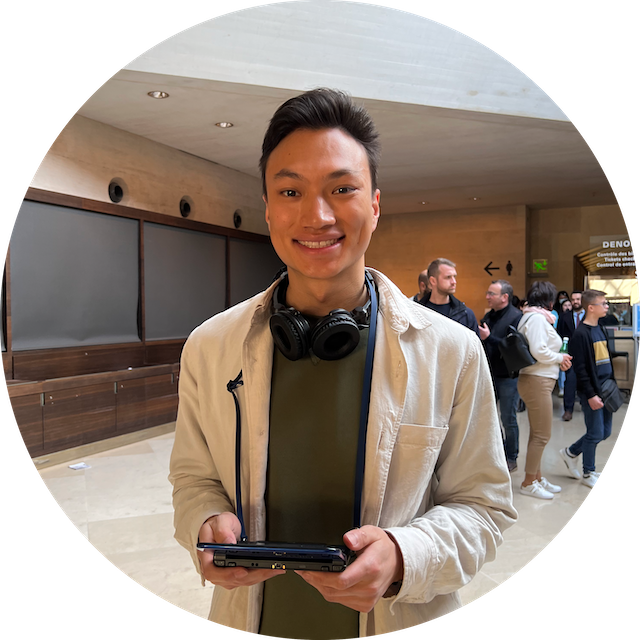When I was about 8, my māma, not unlike many first-generation Asian-American mothers, wanted me to learn the piano. Instead of dutifully practicing for my kind & patient piano teacher, I'd instead hide during lesson time and refuse to practice, upset at my mom for forcing piano upon me. As I got older, I'd behave a little bit more, but I only ever completed a year or so of lessons. The lessons were rigid and typical of classical musical education: Play this piece. Once you've mostly mastered that piece, play this next piece. Learn this technique. Do these scales and warm-ups. Repeat.
Piano lessons didn’t really stick with me or my other four siblings.
Years later, as a freshman year of high school, I started improvising on the dusty, untuned piano we had at home, sitting down and playing whatever came to mind, meshing some lackluster knowledge of chord progressions with basic melodies. I still improvise to this day, occasionally trying a few pieces written by others and sometimes trying to integrate them into my playing. And while I'm certainly not going to impress a musically trained ear, improvisation has become the single most important expressive and meditative outlet in my life. It's a place to create something out of thoughts, emotions, stories, objects, to compress and decompress.
Sometimes, while playing, I’ll imagine stories like a tortoise and a hare, or dancers in synchrony, or opposing forces in an epic battle. Other times, I’m exploring some note patterns that sound interesting.
I wonder if the practice and lessons I was learning from consisted of less structure and more play, piano would have clicked when I was younger.
When my siblings and I were younger, we were artists, storytellers, game developers, and world builders. I think many kids were, in their own ways, in their own worlds.
We built an "Imagination World" and filled it with story arcs from dozens of characters — stuffed animals and whatever we could find. To anyone older, I'm sure the art, stories, games, and worlds we built were simplistic and shallow. We did name a stuffed turtle Turtle, and many characters were relegated to stereotypes (turtles were wise; Pikachus were feisty; barbies were beauty-obsessed; G-I-Joes were macho). We'd create a nonsensical political system (an utopic social democracy at times with an occasional fascist coup d'état) with its own currency, and we’d give preferential storyline treatment to our favorite stuffed toys. It was our own Westworld but without the sophistication, sex, and gore.
In this world, we made the rules and the stories, and we made the goals; and nobody told us what to do. Sure, there were biases in our heads and lives we wanted to mimic, from Pokemon to whatever was on Disney Channel or Cartoon Network. But Imagination World was our own creation to fill the void of boredom.
Out in the world, we'd turn checkered tiles into chess boards, make music out of tongue clicks, and create games while waiting in queues. We'd draw and create our own Yu-gi-oh cards, playing with them in our decks drawn on our father’s business cards.
At some point, we stopped playing. We stopped building, drawing, creating.
We've relegated playtime to video games, board games, and sports, where we're told "hey, you can play now, but follow these rules." We've created less and consumed more.
We're told we're going to work for the X hours of the week of work, so we can enjoy the 168 minus X hours of the rest of the week. Or we cycle between working to live and living to work. We've fallen into our roles and stereotypes and learned how to behave by adhering to the mean.
But what if the next time we had a lofty proposition, we sent it? The next time we saw a climbable tree, we tried to climb it? The next time we saw an abstract art piece, we tried to guess the intent? The next time we weren't sure what to eat, we rolled a die?
In all of life, I think we could all use a little bit more play.
What if we wrote and created even if we weren't writers or creators? What if we just verbed any word whenever we wanted?
What if we tried to play when we worked? Tried to explore something different, just to see what would happen? Focused on non-optimal but more-enjoyable or creative parts of our jobs? Tried different job functions, and created quests and adventures out of what we could?
There’s no reason why work, life, and play are distinctly separate concepts, other than our own self-imposed constraints.
I think childhood play reminds us how we can create more out of the mundane. It reminds us that we don't need more than what’s around us, because what we have in the world around us and in our own heads is already enough — if we play just a little bit more. 🙂

